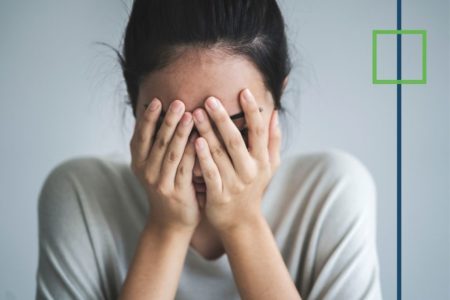Get a free mental health assessment and find out what treatment options are most suitable for you. Depending on the extent of secondary behavioral disorders such as addiction we can first help assess your condition and thereafter guide you to suitable treatment options.
A return to substance abuse after a period of sobriety may qualify as a relapse. It is not uncommon for relapses to occur within 6 months of treatment. According to the National Institute on Drug Abuse[1], the relapse rate for substance use disorders is estimated to be between 40% and 60%. This is similar to the rate of relapse for other chronic diseases, such as hypertension. Relapse prevention treatment is an important component of substance treatment.
Even if the physical act of using drugs or alcohol only occurs once, a person likely needs to return to treatment to address the emotional and mental backslides they experienced. A relapse after completing treatment does not mean that treatment failed or that a return to intensive treatment is necessary. It does, however, signify that a return to some form of treatment is needed. Therefore, steps should be taken to reduce the severity and duration of the relapse episode if relapse occurs.
Three Levels of Relapse:
Emotional
It includes avoiding family and friends and not wanting to join any recovery meetings or going to meetings but not sharing. It may also include poor eating and sleeping habits. Poor self-care best describes emotional relapse. One of the main goals of relapse prevention treatment at this stage is to help people understand what self-care means and why it is important. A simple reminder of poor self-care is the acronym HALT: hungry, angry, lonely, and tired. Another goal of therapy at this stage is to help clients identify their denial.
Mental
Fantasizing about and craving to use drugs or alcohol. In addition, it includes glorifying the old days of alcohol use. It may also involve looking for relapse opportunities and planning a relapse. A critical goal of relapse prevention treatment is to help clients avoid high-risk situations. Once a person has experienced addiction, it is impossible to erase the memory. But with good coping skills, a person can learn to let go of thoughts of drinking quickly.
Physical
Using alcohol or drugs, even just once. Most physical relapses are relapses of opportunity. This usually occurs when the person has a window in which they feel they will not get caught. Part of relapse prevention involves rehearsing these situations and developing healthy exit strategies.
The Most Common Relapse Triggers Include:
- Boredom
- Stress
- Money problems
- Relationship issues
- Certain sights and smells
- Certain people or places
- Falling into old habits
- Anger
- Depression
- Fatigue
- Peer Pressure

How to Prevent a Relapse
There are several steps you can try to stop a relapse if you feel one is coming.
- When you have the urge to drink or use drugs, distract yourself with other activities until the cravings disappear
- Know what triggers your cravings, recognize them, and actively avoid them
- Meditation is a good option
- Physical activities like exercise and do it regularly
- Ask for help from a friend, sponsor, or treatment professional
Relapse Prevention Treatment or Therapy
Relapse prevention treatment or therapy is a type of cognitive-behavioral therapy. It aims to limit or prevent relapses by helping the client to anticipate situations that are likely to provoke a relapse. One can develop a strategy to cope with these high-risk situations in advance. This is called a relapse prevention plan. For example, clients learn that certain feelings and environmental factors can be common triggers for relapse. Relapse prevention treatment teaches therapy participants to be alert for these types of feelings and have a plan of action to cope with them.
We Level Up FL will teach you how to cope with stress and other problems that led you to your addiction in the first place. You need to overcome these triggers to overcome an addiction. When in drug rehab, you will also be taught other ways to relieve stress like meditation, exercise, how to relax, and how to challenge and overcome self-defeating thoughts.
The Stages of Recovery

- Abstinence: It starts immediately after a person stops using drugs and usually lasts for 1 to 2 years
- Repair: This is the second stage of recovery, the main task is to repair the damage caused by addiction.
- Growth: If repair stage of recovery was about catching up, then the growth stage is about moving forward. This stage usually starts 3 to 5 years after individuals have stopped using drugs or alcohol and is a lifetime path.
Abstinence Stage
The main focus of the abstinence stage is dealing with cravings and not using drugs or alcohol. These are some of the tasks of the abstinence stage according to National Center for Biotechnology Information [2]:
- Accept that you have an addiction
- Practice honesty in life
- Develop coping skills for dealing with cravings
- Become active in self-help groups
- Practice self-care and saying no
- Understand the stages of relapse
- Get rid of friends who are using
- Understand the dangers of cross addiction
- Deal with post-acute withdrawal
- Develop healthy alternatives to using
- See yourself as a non-user
Take Control of Your Life Today.
Inpatient medical detox and residential primary addiction treatment may be available at our affiliated facility at Level Up West Palm Beach Rehab. For some primary behavioral health treatment clients, medical detox and or addiction rehab may be required first. If you have a co-occurring severe substance abuse diagnosis, please contact us prior to beginning inpatient mental health therapy. Treatment services may vary. Please call us to learn which treatment options are most suited for your individual needs.
Sources:
[1] National Institute on Drug Abuse – https://www.drugabuse.gov/publications/drugs-brains-behavior-science-addiction/treatment-recovery
[2] National Center for Biotechnology Information – https://www.ncbi.nlm.nih.gov/pmc/articles/PMC4553654/